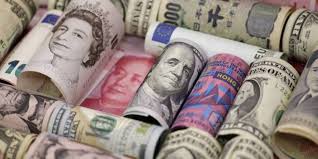Rising importation of goods and services in Nigeria is once again taking a toll on the economy, as a report on Nigeria’s balance of payment shows a current account deficit over the last one year.
According to a report released by Renaissance Capital, Nigeria recorded a 1.1% current account deficit of the country’s total Gross Domestic Product (GDP) in Q1 2019, as against the 1.6% current account surplus that was recorded in the corresponding quarter of 2018.
The breakdown shows that the influence on Nigeria’s external trade position in the last one year was largely due to high travel related service expenses. According to the report, travel-related service payments witnessed a significant increase, which suggests a surge in foreign travel.
However, traveling expenses’ impact on the current account was mitigated by an increase in current transfers from sectors other than the usual workers’ remittances.
In Nigeria’s financial account, net portfolio inflows rose by a remarkable 39% year-on-year to $7.2 billion. Although, it was revealed that net portfolio inflow was partly undermined by a surge in foreign exchange (FX) assets held by banks.
ALSO READ: This disease is more infectious than HIV, killing Nigerians silently
Nigeria’s trade surplus declined and halved to 2.3% of GDP in the first quarter of 2019, from the 4.9% trade surplus recorded in the corresponding quarter of 2018. Specifically, import bill rose to 13.4% of GDP, up from 11.3% in the same period of 2018.
A closer look at the data shows that Nigeria’s non-oil imports constitute 70% of total imports, which almost double the proportion of non-oil imports recorded in the corresponding period of 2019. It should be noted that with the subdued growth of 2.0%, import demand is expected to surge as consumption increases.
An analysis of foreign travel shows that Nigeria’s payments to Foreign Service providers rose by 47% in one year, estimated at $9.1 billion. Further insight shows that the rise in payment on Foreign Service providers was largely due to a strong increase in foreign travel and other business activities.
On the other hand, Income payment decreased by 8% in the first quarter of 2019 (year-on-year), which was too low to mitigate the bulk payment made on Foreign Service providers.
Meanwhile, Current transfers which is the only component of Nigeria’s current account that has always yielded a positive position was boosted by a surge in non-workers remittance. Year-on-year, current transfers increased by 39% in the first quarter of 2019 to $7.1 billion. This represents the highest quarterly current account transfers in about a decade.
Nigeria’s financial account is made up of three key components which include Portfolio, direct and other investments. In the first quarter of 2019, the net portfolio increased by 39% to $7.1 billion, which means that a large chunk of portfolio inflows in the country went into high-yielding debt instruments.

 Health5 days ago
Health5 days ago
 Entertainment6 days ago
Entertainment6 days ago
 Crime5 days ago
Crime5 days ago
 Education7 days ago
Education7 days ago
 Health7 days ago
Health7 days ago
 Comments and Issues6 days ago
Comments and Issues6 days ago
 Football6 days ago
Football6 days ago
 Latest6 days ago
Latest6 days ago













